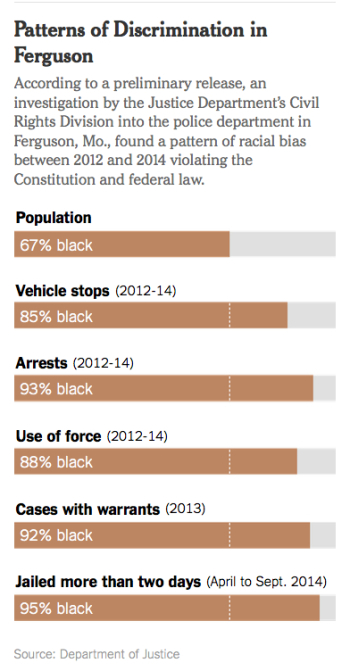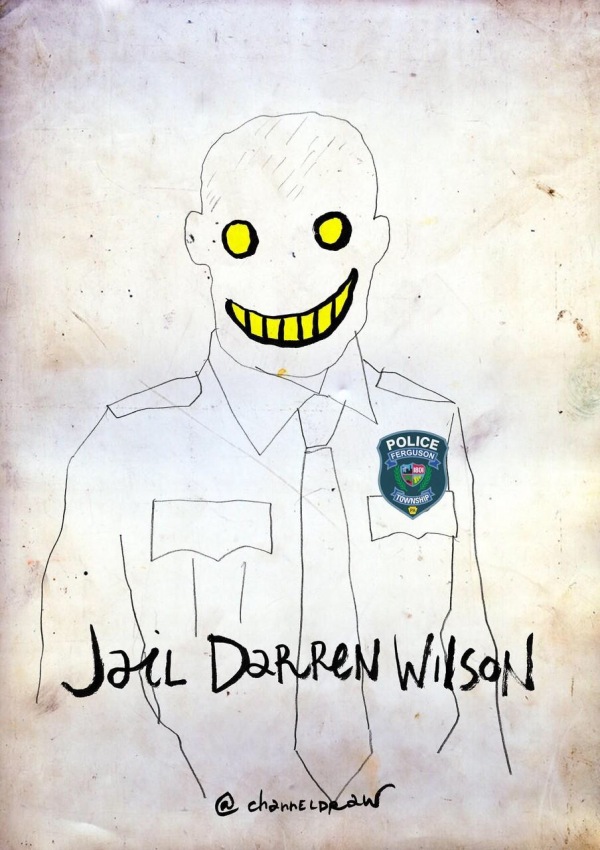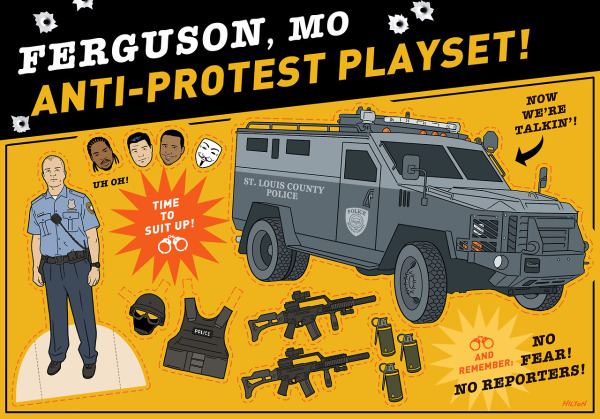Artwork by GIANLUCA CONSTANTINI
THE NEW YORKER: In our many discussions, Wilson rarely spoke of Michael Brown. Twice, I asked him if he had reflected on what kind of person Brown was. The first time I asked, it was early May, and Brown’s parents had just filed their civil lawsuit against him. “You do realize that his parents are suing me?” he said. “So I have to think about him.” He went on, “Do I think about who he was as a person? Not really, because it doesn’t matter at this point. Do I think he had the best upbringing? No. Not at all.” His tone was striking, given Wilson’s own turbulent childhood.
Six weeks later, Wilson told me that he had never really had a chance to contemplate who Brown was, because he had been preoccupied by the maelstrom that followed the shooting. I asked him if he thought Brown was truly a “bad guy,” or just a kid who had got himself into a bad situation. “I only knew him for those forty-five seconds in which he was trying to kill me, so I don’t know,” Wilson said. […]
Since the shooting, gun sales in Ferguson have spiked, and there is little sense of reconciliation. The  sixteen members of the Ferguson Commission have been charged with proposing policy reforms. Rasheen Aldridge, the activist, who is a member of the commission, told me that last August he believed that Wilson deserved the death penalty. Since then, his views have softened: “I can’t hold hatred in me for too long.” He still can’t decide what kind of punishment Wilson deserves. “I want to be, like, ‘He needs to go to jail.’ But then there’s also that other side of me that understands everything. He is probably in prison, in a way.”
sixteen members of the Ferguson Commission have been charged with proposing policy reforms. Rasheen Aldridge, the activist, who is a member of the commission, told me that last August he believed that Wilson deserved the death penalty. Since then, his views have softened: “I can’t hold hatred in me for too long.” He still can’t decide what kind of punishment Wilson deserves. “I want to be, like, ‘He needs to go to jail.’ But then there’s also that other side of me that understands everything. He is probably in prison, in a way.”
At one point, I asked Wilson if he missed walking outside and going to restaurants. He told me that he still ate out, but only at certain places. “We try to go somewhere—how do I say this correctly?—with like-minded individuals,” he said. “You know. Where it’s not a mixing pot.”
Wilson has received several thousand letters from supporters, and he has written thank-you notes to almost all of his correspondents. Many of the letters are from police officers. Some are from kids. One card reads, “Thanks for protecting us!” Wilson proudly showed me a drawer, in his living room, which contained dozens of police-department patches from cops expressing their support. None of those cops, however, had offered him a job. MORE
NEW YORK TIMES: A police officers’ group in Columbia, Mo., proclaimed “Darren Wilson Day” on Sunday, the one-year anniversary of the officer’s fatal shooting of Michael Brown in Ferguson, Mo. It did not go over well. In a Facebook post published Sunday and removed on Monday, the Columbia Police Officers’ Association referred to Mr. Wilson as an “innocent, but persecuted, officer.” The group said in the post that its support for the officer had nothing to do with race, according to The Columbia Daily Tribune. The effort to recognize Mr. Wilson attracted condemnation from local officials, including the chief of Columbia’s police department. MORE


